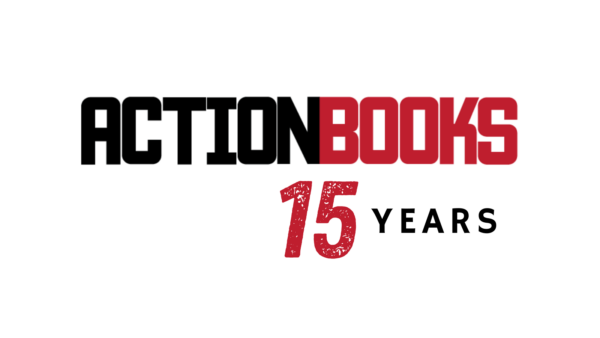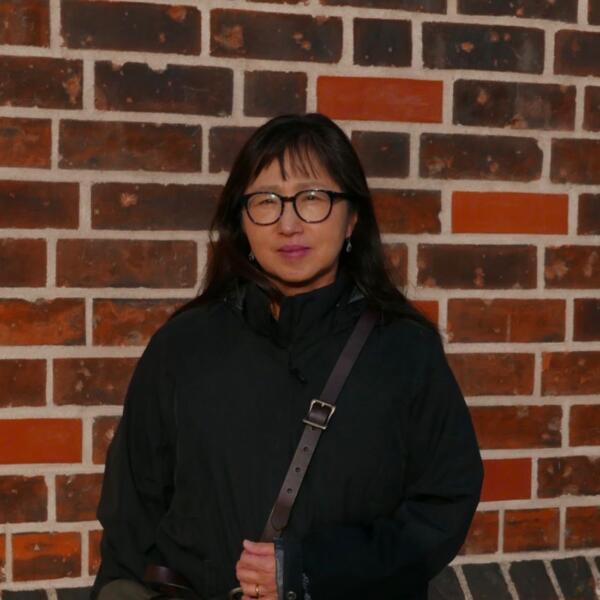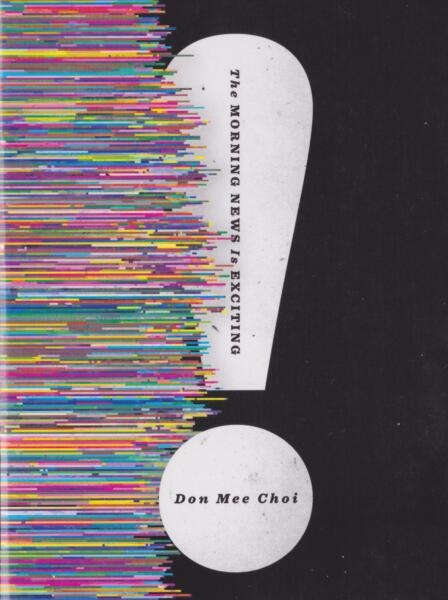
Paul Cunningham: First, congratulations on your National Book Award for DMZ Colony (Wave Books, 2020)! As you know from Twitter, I’ve noticed distinct connections between DMZ Colony and your debut collection from Action Books—The Morning News Is Exciting (2010).
In your 2010 book, you write, “Daisy Cutter can touch us, cut us, demolish our petals. Our gown can stain like a drape. Translator for hire! Hire me. See you at DMZ! Yours, Twin Flower.” In DMZ Colony, I got chills as the white pages turned black and I noticed the repeat of “See you at DMZ.” How do you see these two books in conversation? Is it what you might call the “pursuit of memory” against a “history of oblivion”?
Don Mee Choi: I think you are the only reader who has noticed this. Thank you. The Morning News Is Exciting contains everything that I’m still exploring. I keep returning to it to see which lines or images or ideas I can replant and see how they might grow or die. In DMZ Colony I also reused the lines “Translator for hire! Hire me” as “Translator for hire! Hire, hire me.” Repeating “hire” one more time felt totally necessary. A small detail, but I basically live for such small things. I also want to weave across my books because they are all connected, in a sense that I am only obsessed with writing about one thing—the overlapping histories of Korea and the US.
PC: What is the story behind the cover art for The Morning News Is Exciting?
DMC: Robert Mckenna designed the brilliant cover. The poem “The Morning News is Exciting” begins with:
TO ALL BOYS AND MEN!
Dandelions may not be weeds. They are related to chrysanthemums. Girls should.
He somehow digitally mashed together the lines above with a photo image of a chrysanthemum.
Then added the exclamation mark.
PC: Action Books published four of your translations of Kim Hyesoon: Mommy Must Be A Fountain of Feathers (2008), Garbage of the World Unite! (2011), Sorrowtoothpaste Mirrorcream (2014), and Poor Love Machine (2016). When did you first begin translating Kim Hyesoon’s poetry? What drew you to her work?
DMC: I read a couple of Kim Hyesoon’s earlier books published in the 1980s and started translating some poems from them. Then I started submitting some of her poems to various journals. Then one day, soon after the War on Terror and the Axis of Evil had been declared, I got an email from Stefania Heim and Jennifer Kronovet, the founders of a translation journal Circumference, asking me to submit my translations. Then several months later, Joyelle reached me via Susan Schultz of Tinfish Press. The biggest challenge for me at the time was finding a publisher that was interested in publishing translation, especially translation of Korean feminist poetry. So naturally, I was shocked by Joyelle’s and Johannes’ enthusiasm for translation and Kim Hyesoon’s poetry. I should also mention that the proliferation of Korean translation which took place the past ten years could not have happened without the institutional funding support from LTI-Korea. As I get older and get better at reading Kim Hyesoon’s poetry, I find her poetry even more fascinating. Her Korean syntax is often difficult, her wordplays are funny and addictive, and she is always generating new language for each collection she writes. Kim Hyesoon is as obsessed as I am about Korea’s contemporary history. Her obsession is expressed or woven very tightly, often entangled with her body, her existence. This is what draws me into her work—untangling and reweaving into English her mastery, her cosmos.
PC: How do you feel about a translator’s visibility versus invisibility?
DMC: I know this is not a fashionable thing to say as a translator, but I happen to like translator’s invisibility. I’m that tongue that has licked and groomed every word and punctuation. So whether you see me or not is not my problem. The real problem is the slimy saliva my tongue has left behind which you will be or are already in contact with.

Born in Seoul, South Korea, Don Mee Choi is the author of DMZ Colony (Wave Books, 2020), Hardly War (Wave Books, 2016), The Morning News Is Exciting (Action Books, 2010) and several pamphlets of poems and essays. She is a recipient of a National Book Award for Poetry, Whiting Award, Lannan Literary Fellowship, Lucien Stryk Translation Prize, International Griffin Poetry Prize (Translation), DAAD Artists-in-Berlin Fellowship, and Guggenheim Fellowship.

